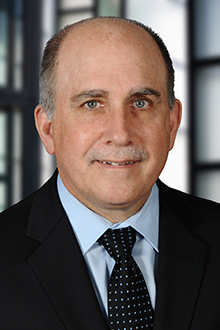Interstate Fire & Casualty Company, Inc. v. Roman Catholic Church Of The Diocese Of Phoenix
(Assault and battery exclusion applying to “any insured” barred coverage of the Archdiocese for sexual abuse claims)
In Interstate Fire & Cas. Co., Inc. v. Roman Catholic Church of the Diocese of Phoenix, 761 F.3d 953 (9th Cir. July 30, 2014), the United States Ninth Circuit Court of Appeals reversed the District Court’s entry of judgment in favor of the Roman Catholic Church of the Diocese of Phoenix (“Diocese”) in connection with coverage of the Diocese’s settlement of four lawsuits for alleged sexual abuse by its priests against adolescent males. The Diocese was insured under an excess indemnity policy provided by Interstate Fire & Casualty Company, Inc. (“IFC”). IFC denied coverage of the settlement of the four lawsuits based on the following assault and battery exclusion in its policy:
THIS INSURANCE DOES NOT APPLY –
(a) to liability of any Assured for assault and battery committed by or at the direction of such Assured except liability for Personal Injury or Death resulting from any act alleged to be assault and battery for purpose of preventing injury to persons or damage to property[.]
The Diocese objected to IFC’s declination of coverage by arguing that the exclusion should only be applied to the deviant priests, rather than the Diocese. The District Court agreed with the Diocese and entered summary judgment in its favor. In reversing the District Court’s decision, the Court of Appeals reasoned as follows:
Neither party disputes that the "Assured" under the policy covers not only the Diocese itself but also its priests and other employees working in the schools, parishes, agencies, and organizations directly connected to the Diocese. The question is the scope of the assault and battery exclusion, which uses the term "Assured" in two places: "any Assured," followed by "such Assured." Two principles guide our analysis. In interpreting the policy under Arizona law, the words "any" and "such" are to be given their ordinary meaning. See Phelps Dodge Corp. v. Brown, 112 Ariz. 179, 540 P.2d 651, 653 (Ariz. 1975). We read these words in the context of the policy and do not rewrite its text. See id.; see, e.g., Barber v. Old Republic Life Ins. Co., 132 Ariz. 602, 647 P.2d 1200, 1202 (Ariz. Ct. App. 1982) ("a policy . . . .").
We turn first to the plain meaning of the term "such Assured." As relevant here, the word "such" is defined as "of a kind or character about to be indicated, suggested, or exemplified" or "having a quality already or just specified—used to avoid repetition of a descriptive term." Webster's Third New International Dictionary 2283 (2002). This definition indicates that "such Assured" in the exclusion carries the precise meaning as the assured "just specified."See id.; see, e.g., Spartan Petroleum Co. v. Federated Mut. Ins. Co., 162 F.3d 805, 809 (4th Cir. 1998) (holding that "such" property damaged referred back to the last mentioned "property damage" in the policy at issue). Here, the assured "just specified" is "any Assured"—those who allegedly committed the assault and battery as well as innocent co-insureds.
The Diocese maintains that the phrases "any Assured" and "such Assured" should be "presumed to have different meanings" and that IFC should have used language clearly communicating a limitation of coverage. Yet the Diocese's reading can only be reached by ignoring the plain meaning of the exclusion and jumping to the conclusion that the text is unclear. This effort to infuse ambiguity into an otherwise clear agreement is unavailing. As the Arizona Court of Appeals noted in Brown v. United States Fidelity & Guaranty Company, "when an exclusionary clause precludes recovery to 'any insured,' the term is not ambiguous and clearly encompasses all persons insured under the policy." 194 Ariz. 85, 977 P.2d 807, 817 (Ariz. Ct. App. 1998). Reading the policy in context, the ordinary meaning provides that "such" refers back to "any," thus indicating that the exclusion applies to "any official, trustee or employee" of the Diocese.
